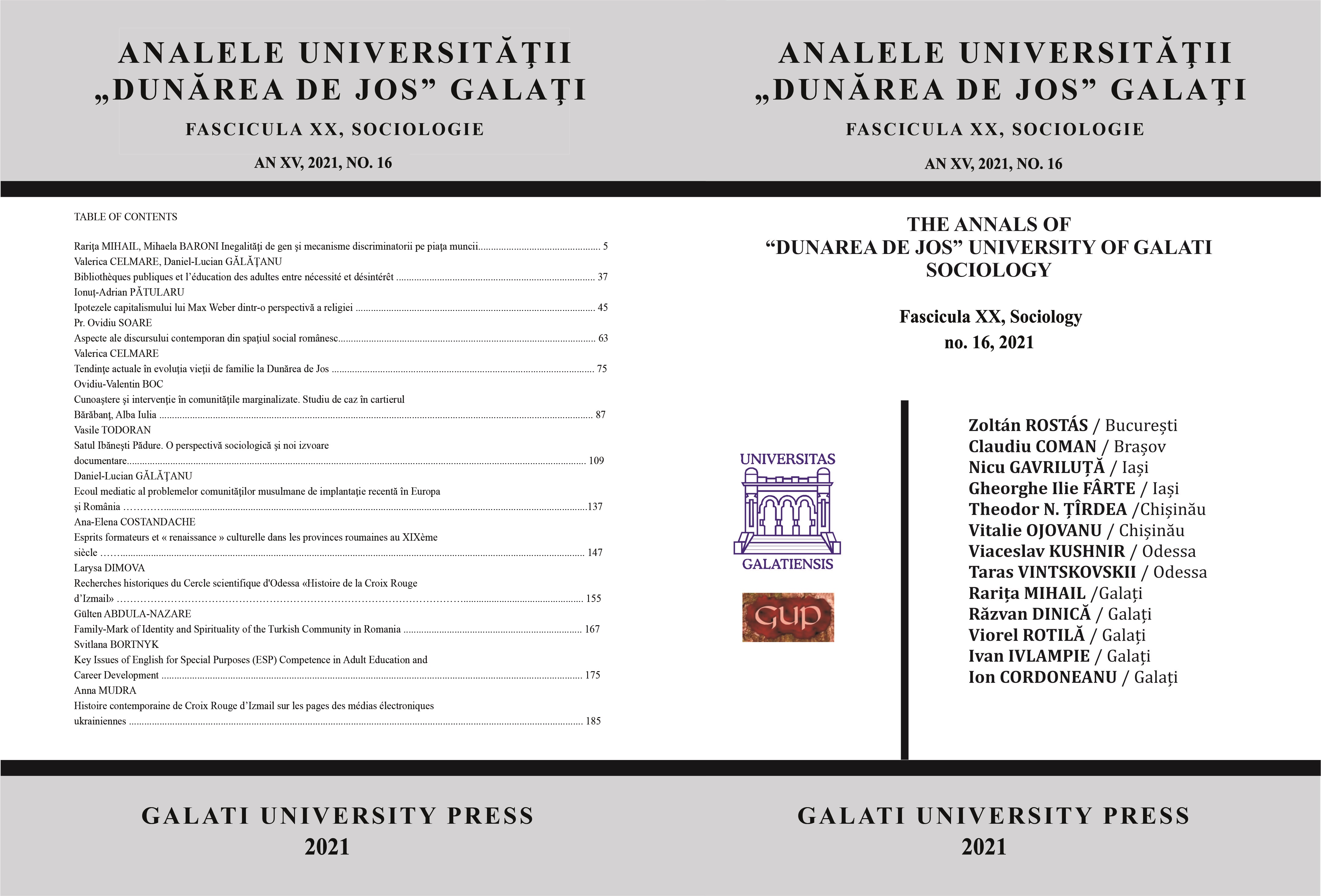Ipotezele capitalismului lui Max Weber dintr-o perspectivă a religiei
Max Weber's Capitalism Hypothesis from a Religious Perspective
Author(s): Ionuț Adrian PătularuSubject(s): Politics and religion, Sociology of Religion
Published by: Galaţi University Press
Keywords: capitalism; society; ideology; religion; Occident; cultural;
Summary/Abstract: One of the most complex forms of government in society is undoubtedly capitalism. Several ideologues (sociologists, anthropologists, historians, theologians) have leaned on this ideology, some of them considering that it is the best performing social system, while others, on the contrary, have seen in capitalism an obvious failure, categorizing it as a purely pragmatic, profit-based system, without remorse amputating the social assistance area and greatly diminishing the empathy of the religious. In fact, these researchers see capitalism as a spartan way of leading the world, in which the poorly prepared for society have little chance of asserting themselves in relation to those who are prepared and trained to win and who make any opportunity a success. In the twentieth century, we are witnessing a radical change in capitalism, through the working hypothesis of Max Weber, who saw the Christian religion in a dynamic and reforming way. In fact, success was a form of God's predestination for the individual, the spirit of capitalism being compatible in the Weberian view with Calvin's ethics.
Journal: Analele Universității „Dunărea de Jos” din Galați, Fascicula XX, Sociologie
- Issue Year: 16/2021
- Issue No: 1
- Page Range: 45-61
- Page Count: 17
- Language: Romanian

